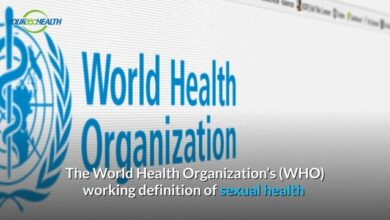Grief in Times of Trouble
By: Dr. Elizabeth Valera, M.Div. LPC, CT.
Before I roll out of bed, I check my phone, I know, not a good habit for a mental health counselor, and there I see news reporting the rising death toll. As the numbers climb, my stomach drops: Is someone in my family impacted? Has a friend, colleague, or client gotten sick or been the target of racial profiling? I take a breath, only to notice the unemployment numbers….Right now we are all facing the reality of death and loss daily.
To make sense of this, it is important to know that there are at least two different types of loss happening; death and non-death losses. When the word grief comes up, our first thought is usually the death of someone we know personally. For those of us grieving the loss of a family member or close friend, there are now added burdens. Delayed funeral services may relieve the stress of planning a large service immediately, but may also delay social support and leave you feeling more isolated.
Figuring out ways to hold services while remaining safe may be overwhelming. Many people have the sense that their loved one’s natural life-time has been stolen away or cut short. If you are involved with the legal system to seek justice related to your loved one’s death, this process will likely be the focus of a great deal of energy with little time left to mourn. A person may also grieve for ‘lost time’ that could have been spent with the deceased if stay at home orders were not in effect. Also, because of social distancing and infection control precautions, you may feel a sense of grief that you could not be physically closer during their last days of life. This is not what anyone imagined. It is understandable if you feel caught off-guard and unprepared.
These are all very natural reactions to death. Even if you have not experienced the death of a close family member or friend, you are nonetheless impacted by the deaths we see reported every day. It is okay to acknowledge feelings of grief for the thousands of people around the world who have died from COVID-19, even if you did not know them personally.
In the past few years, researchers and educators such as Darcy Harris have written about “non-death loss”. Non-death losses are often more difficult to describe at first and therefore may not receive the same type of acknowledgment within our communities. This is understandable because non-death losses may be very specific to you; others may not even realize a loss has occurred. While non-death losses may get less attention, the emotional impact may continue just as long as a death-loss. It may take a beat or two for you to recognize that you are grieving.
Some recent non-death losses that are dominating the news:
- Reduction/Loss of employment
- Loss of safety
- Cancellation of life ceremonies such as graduations and weddings
- Inability to travel
- Changes in prenatal and birthing plans due to pandemic
- Missing physical closeness, such as hugs
- Loss of a sense of freedom
- Financial losses
- Divorce/Separation
Because many of these are seen as reversible, it is tempting to dismiss their impact. However, all of these non-death losses can have a significant influence on how we view ourselves and the world around us. Drawing on the work of Dr. Alan Wolfelt of the Center for Loss and Life Transitions, and general knowledge from my work with grief and loss, here are some key points to keep in mind:
Permission to Grieve
You have likely experienced a combination of death and non-death losses. With non-death losses, it may be especially important to verbally acknowledge what you are feeling and name what you have lost. Permitting yourself to grieve is a way of honoring the importance of the experience, even when it is uncomfortable or painful.
Each Person’s Grief is Unique
Your loss is unique to you and there is no single “right” way to grieve. You may have heard about the “stages” of grief. We now understand that there are many pathways through grief. You do not need to feel constrained by working through set stages. Emotions such as sadness, anger, relief, and love are all part of the process and may arise at various times throughout your journey. Many people feel a surge of emotions a few months after a death. This is completely normal and could be viewed as an indicator that your grief is ready for some more attention. You may also find that you are more easily irritated and have difficulty concentrating. It is common for each member of a family to have their way of coping with loss. As long as everyone is safe, try to be understanding of your different ways of grieving.
Expect “Grief Bursts”
“Grief bursts” are unexpected surges of grief that may come up at any time. This will likely feel uncomfortable but is a very natural part of grief. Try to be understanding with yourself when you have a grief burst. Your system is simply alerting you to one aspect of your loss that may need some attention. Allow yourself some time to cry, even if you have to step away from what you are doing. It may be helpful to explore: What was going on when the grief burst happened? What part of my grief is this bringing up for me?
Grief is Not A One-Way Street
Grief is more like Atlanta’s “spaghetti junction”. Just as you are making progress in “rebuilding” or “moving forward” an unexpected loss-reminder may pop up, sending you looping back over previously covered territory. Prominent researchers Margaret Stroebe and Hank Schut have described this process of oscillating between loss-oriented stress and restoration-oriented stress as part of healthy coping. Although frustrating, this is not going backward, but another part of the grief process. You will likely move between tending to your loss and working towards future goals many times along the way. At times when you are focused on restoration related activities, it can provide a sense of relief from the intensity of loss.
Delayed Mourning
While you will naturally feel the emotions of grief and experience the impact of the loss in your life, you may not have as many opportunities to mourn because of the pandemic. Mourning is the process of acknowledging your loss among your various social connections, including your workplace, house of worship, friendship groups, and community organizations. It is the outward expression of grief. Informal support that may have taken place more organically before the pandemic—between coworkers during a break or coffee hour after worship—are now less available to us. You may need to be direct about reaching out for the support you need, rather than waiting for these informal opportunities.
Be Creative
The constraints of the pandemic do not have to stop you from expressing your grief. Use online memorials. Create photo books or explore forms of artistic expression using collage, clay, or other materials you are drawn to. Distance memorials may be organized in open-air spaces, allowing people to visit in their own time and leave personal messages or offerings. Nature remains available to us and may even be a source of comfort. Look for online groups specific to your loss or suggest a distance meet-up with a good friend.
For some grievers, it has been helpful to set up an intentional space at home to connect with the person who died—including a picture, items you associate with them, and other reminders of their unique personality.
Manage your Social Media
While social media is a great source of connection, there can also be many loss reminders. As you see photos of people enjoying times with their family members you may feel a mixture of emotions, including envy and longing for the person who died. In dealing with a non-death loss, you may see social media posts from ‘exes’ or people associated with your loss. This can be tough. While there is no way to completely avoid these unexpected loss reminders on social media, it may be helpful to put some limits in place for yourself. Consider turning off notifications. Have someone you can reach out to for support when you see posts that bring up a surge of grief. Become very familiar with your settings and adjust them as needed!
Tell your Story
Find safe spaces to share about your loss, and about your connection with the person who died. Look for ways to carry on their legacy. Even with non-death losses, you can find meaningful ways to maintain connections and bonds as your life changes. If you’re struggling with how to get started, consider talking with a grief counselor, or search for an on-line grief group. It may be as simple as putting down your phone, turning off the news for a while, and lighting a candle in honor of the losses you are feeling.
Finally, grief can be hard; it is hard. If you are having thoughts of suicide or abusing drugs or alcohol, don’t wait; call the National Suicide Prevention Lifeline at 1-800-273-8255.
For all things, grief-related, check out: www.WhatsYourGrief.com
Center for Loss and Life Transition: www.centerforloss.com
Grieving a Homicide Loss:




